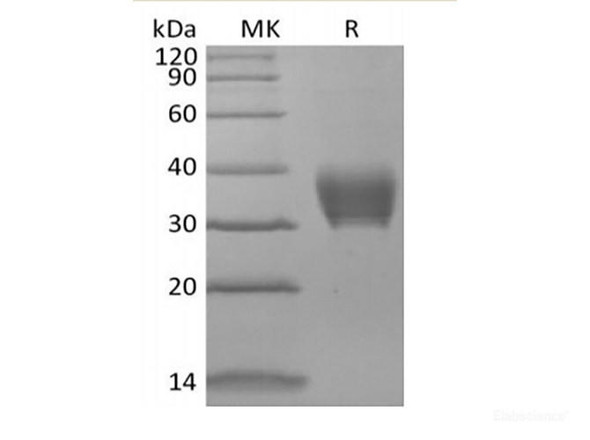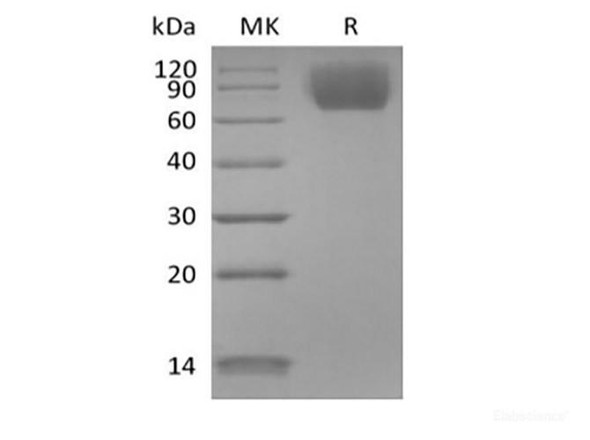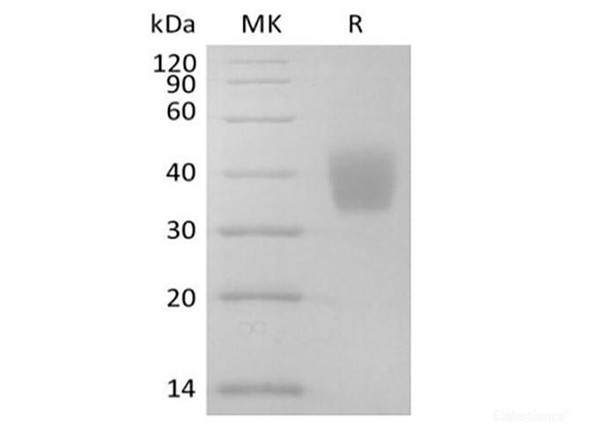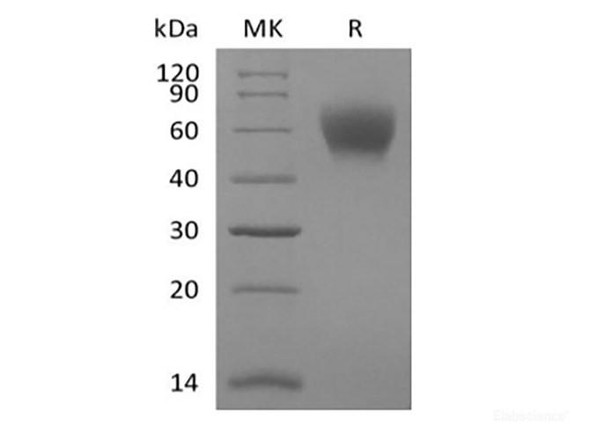Description
| Product Name: | Recombinant Mouse TGFBR3 (C-6His) |
| Product Code: | RPES6656 |
| Size: | 10µg |
| Species: | Mouse |
| Expression Host: | HEK293 Cells |
| Synonyms: | InBGCAN, TBRIII, TGF-beta receptor type 3, TGF-beta receptor type III, TGF-beta RIII, TGFbetaRIII, TGFBR3, TGF-bRIII, TGFR-3, Transforming growth factor beta receptor III |
| Mol Mass: | 85.9 kDa |
| AP Mol Mass: | 115-200 kDa |
| Tag: | C-6His |
| Purity: | > 95 % as determined by reducing SDS-PAGE. |
| Endotoxin Level: | < 1.0 EU per μg of the protein as determined by the LAL method. |
| Bio Activity: | Testing in progress |
| Sequence: | Glu23-Thr785 |
| Accession: | A0A0R4J097 |
| Storage: | Generally, lyophilized proteins are stable for up to 12 months when stored at -20 to -80°C. Reconstituted protein solution can be stored at 4-8°C for 2-7 days. Aliquots of reconstituted samples are stable at < -20°C for 3 months. |
| Shipping: | This product is provided as lyophilized powder which is shipped with ice packs. |
| Formulation: | Lyophilized from a 0.2 μm filtered solution of PBS, pH 7.4. Normally 5 % - 8 % trehalose, mannitol and 0.01% Tween80 are added as protectants before lyophilization. Please refer to the specific buffer information in the printed manual. |
| Reconstitution: | Please refer to the printed manual for detailed information. |
| Background: | Transforming growth factor beta receptor III (TGF-beta RIII; also betaglycan) is a ubiquitously expressed, 280 kDa type I transmembrane proteoglycan member of the TGF-beta superfamily of proteins. This receptor is a membrane proteoglycan that often functions as a co-receptor with other TGF-beta receptor superfamily members. TGF-beta RIII can enhance or inhibit cell signaling. TGF-beta RIII has been shown to play an essential role in the formation of the atrioventricular cushion and coronary vessels during development of the heart. TGF beta RIII also plays a role in many cancers. Increased expression of TGF beta RIII is found in higher grade lymphomas, and reduced expression of TGF beta RIII is found with advanced stage neuroblastomas and ovarian carcinomas. Low TGF-beta RIII expression also correlates with higher grade among a cohort of breast cancers. TGFBR3 is known to be expressed in adult testis and ovary, but little is known about this receptor during gonadogenesis. |






